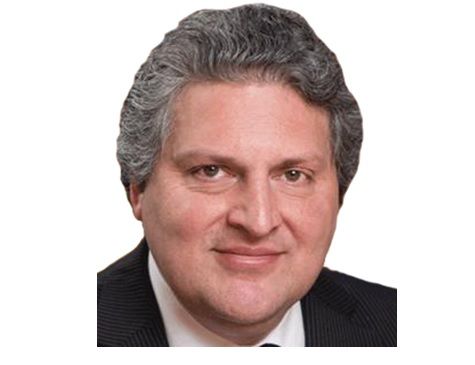I’ve thought long and hard about this; I’ve bitten my tongue for a day or so but I’ve waited long enough: the 14-year prison sentence meted out to former swaps trader Tom Hayes at the start of the week over attempts to rig yen Libor was a Draconian and ruthless penalty far in excess of the severity of his transgressions.
He’s not a rapist or a murderer, for God’s sake. He didn’t rob old ladies at knifepoint; run a drug cartel; engage in human trafficking; or run a child prostitution ring. Nor is he a sinister Mafia Don sitting at the centre of a global organised crime ring. The ”Machiavelli of Libor” forced to stand trial in a locked glass-enclosed dock? Really?
He was absolutely and incontrovertibly scapegoated. The vindictive outcome was intended as much to salvage the reputation of the UK’s Serious Fraud Office in a totally separate political side-story; as much to silence critics who accuse the UK’s financial watchdogs of being soft; as much to give the finger to the US Department of Justice with which UK judicial authorities were in competition to try the case (the DoJ had been planning to extradite Hayes to the US) as it was to send any signal to the wider banking community. Or – much more to the point – find a penalty properly consistent with Hayes’ misdemeanours.
It was a smug and conceited play to the gallery of anti-banker sentiment and, as such, depressingly consistent with the prejudice and lust for revenge that’s been emanating from the public policy machine since the financial crisis. Hayes took the rap for seven years of stored-up hatred.
Let’s be clear here: I’m not condoning wrongdoing. As I’ve said before, those who went over the line need to be punished. But 14 years, twice the sentence handed to rogue trader Kweku Adoboli? Significantly more than convicted insider trader Raj Rajaratnam’s 11 years? Come on… Hayes won’t be eligible for parole until August 2022!
Mitigation
I’m not sure I want to get into the significance of Hayes’ aborted SOCPA plea, his wonky legal strategy, claims of negative bias from the judge or his supposed inability to find what he did dishonest. But do I think the fact that Hayes was a shabbily-dressed, socially-awkward, deeply eccentric patterns-obsessed weirdo with Asperger’s syndrome sleeping into his 20s under a Superhero duvet; all of that Rain Man, Kid Asperger, and Tommy Chocolate stuff is relevant? Yes.
Do I think the fact that the man needed the help of a court intermediary to help him through the trial; where the jury was told to try and ignore the manner and curtness of his responses is relevant and mitigating? Yep.
Do I think the fact that Libor-rigging was commonplace, that Hayes’ managers and bosses knew what he was doing were mitigating circumstances? Yes.
“The fact that others were doing the same as you is no excuse, nor is the fact that your immediate managers saw the benefit of what you were doing and condoned it and embraced it, if not encouraged it,” the judge said at sentencing. Those comments speak volumes. I’m not sure I agree with the judge. At worst, if it wasn’t an excuse per se it should definitely have played against the severity of the sentence. And can we assume his managers will be next to face trial?
And who were the victims here? Did Hayes actually succeed in altering the Libor rate? Again, the judge:
“…the extent to which the published rates changed from what they would otherwise be cannot be assessed, particularly as there appear to have been some other banks … attempting the same activity with contrary trading interest to yours”.
“The number of victims is not clear on the evidence…”
“…it is effectively impossible to assess the scale of the losses caused to the counterparties to the trades in which you and your employers participated …”
So: a) no identifiable victims; b) no evidence of losses; c) no proof that Libor actually changed.
And, saving the best for last (my italics): “It is no excuse to say that banks were involved in lowballing at the time in order to avoid suggestions of liquidity or solvency issuers in the stressed markets of 2007-2009. That was not permissible but was different in kind from the attempted manipulation of Libor to make profits, even if the movements you sought were generally of lesser figures than those which you suggested to the jury were the result of lowballing on the basis of directions from more senior managers at the bank”.
In other words, it’s OK for senior management or even monetary authorities to lean on people to manipulate Libor in order, in effect, to mislead the banking sector and its global network of interlocked counterparties as long as institutional or systemic issues are at issue?
This saga is by no means even remotely at an end, with more trials coming in the autumn and others bound to kick off in the light of Hayes’ recorded testimony to the SFO. But was this case a victory for British financial authorities, as advertised? Was it, hell.
